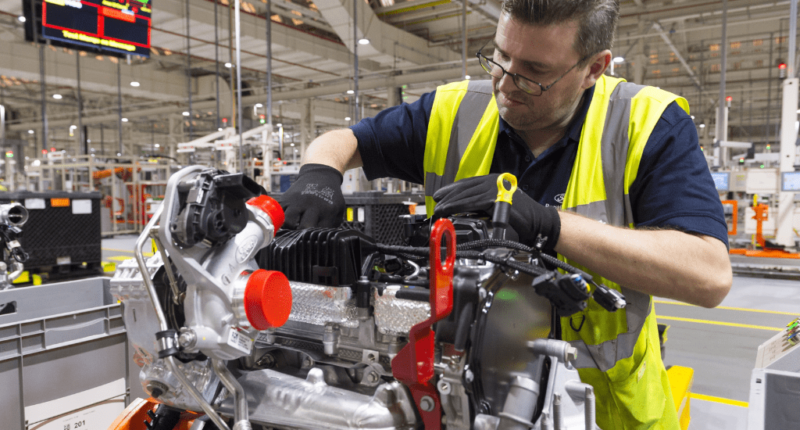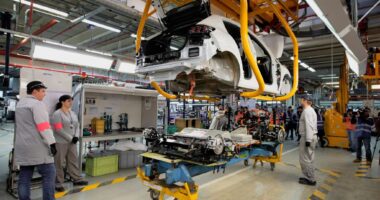“Multiple factors” have been blamed on the fall in UK car production last year by the Society of Motor Manufacturers and Traders (SMMT).
Overall, car build volumes dropped 6.7% to 859,575 between January and December – the worst total since 1965 – with output down by 61,353 on 2020 and 34% below pre-pandemic 2019.
The SMMT says the “overall poor performance can be attributed to several factors”, all of which are directly linked to the COVID-19 health pandemic. Chief amongst these was the shortage of semi-conductors which led to factories either having to reduce or pause production altogether while awaiting delivery of parts.
Staff shortages also presented problems for manufacturers as people, in line with government guidance, were required to self-isolate if they tested positive for COVID or were a close contact of someone who had contracted the respiratory illness.
The knock-on effects of Honda’s Swindon facility being closed indefinitely last summer has also been keenly felt; this alone accounted for around a quarter of the annual decline.
The one flicker of hope was the number of battery electric, plug-in hybrid and hybrid electric vehicles that rolled out of British factories last year. At almost a quarter of a million (224,011), these zero and ultra-low emission vehicles accounted for more than one-in-four new cars made.
Mike Hawes, the SMMT’s Chief Executive, said: “2021 was another incredibly difficult year for UK car manufacturing, one of the worst since the Second World War which lays bare the exposure of the sector to structural and, especially, COVID-related impacts.
“Despite this miserable year, there is optimism. With Brexit uncertainty largely overcome with the TCA deal, investments have been unleashed, most of which will help transform the sector to its zero-emission future.
“This is a vote of global confidence in the UK but must be matched by a commitment to our long-term competitiveness; support for the supply chain in overcoming parts shortages, help with skills and training and, most urgently, measures to mitigate the escalating energy costs which are threatening viability,” he added.
Early forecasts suggest a more productive 2022 lies ahead, UK car production to increase to more than one million units. If that materialises it will represent a 19.7% uplift on the 2021 total, despite the loss of production in Swindon.









